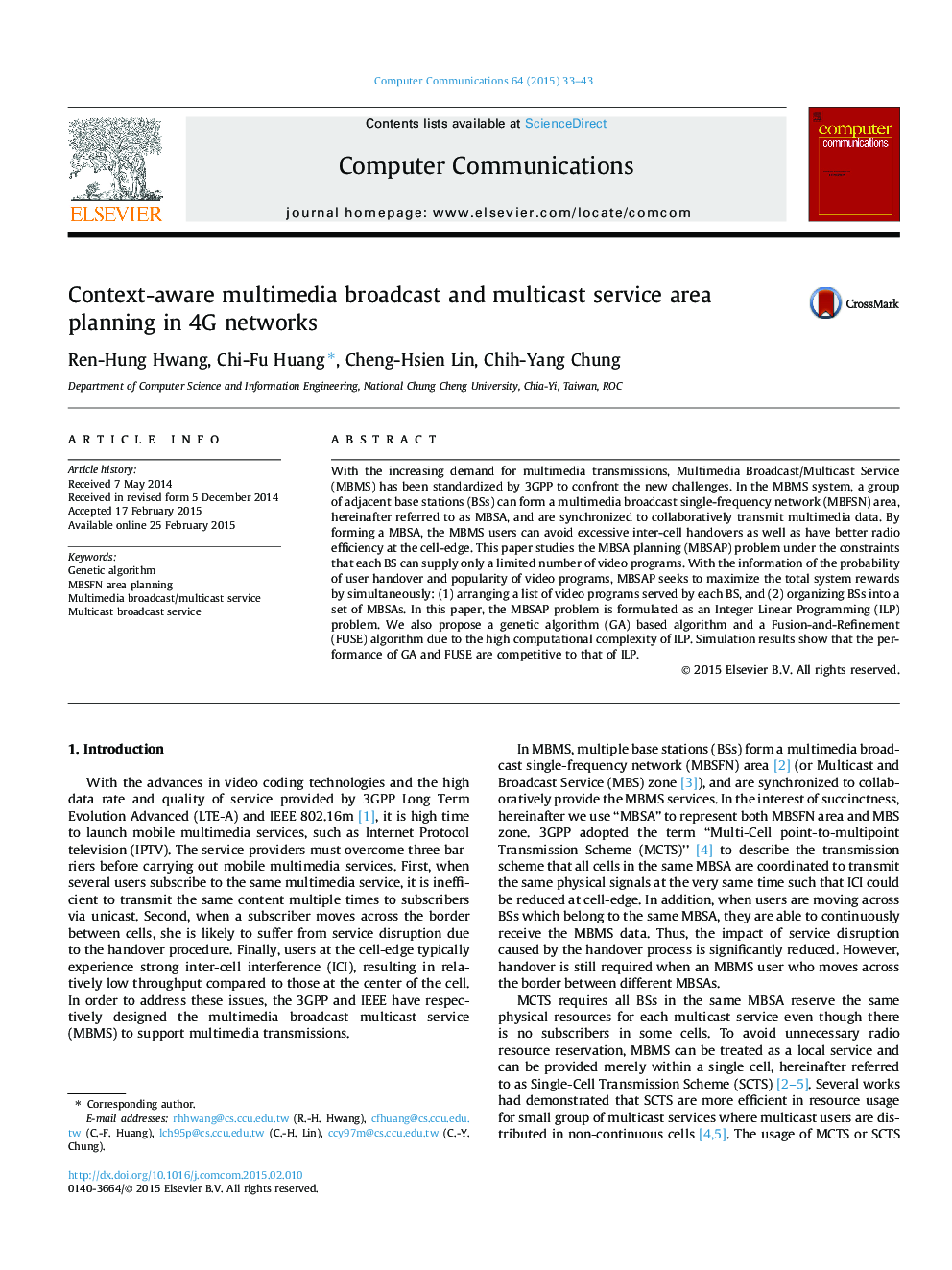| Article ID | Journal | Published Year | Pages | File Type |
|---|---|---|---|---|
| 445798 | Computer Communications | 2015 | 11 Pages |
With the increasing demand for multimedia transmissions, Multimedia Broadcast/Multicast Service (MBMS) has been standardized by 3GPP to confront the new challenges. In the MBMS system, a group of adjacent base stations (BSs) can form a multimedia broadcast single-frequency network (MBFSN) area, hereinafter referred to as MBSA, and are synchronized to collaboratively transmit multimedia data. By forming a MBSA, the MBMS users can avoid excessive inter-cell handovers as well as have better radio efficiency at the cell-edge. This paper studies the MBSA planning (MBSAP) problem under the constraints that each BS can supply only a limited number of video programs. With the information of the probability of user handover and popularity of video programs, MBSAP seeks to maximize the total system rewards by simultaneously: (1) arranging a list of video programs served by each BS, and (2) organizing BSs into a set of MBSAs. In this paper, the MBSAP problem is formulated as an Integer Linear Programming (ILP) problem. We also propose a genetic algorithm (GA) based algorithm and a Fusion-and-Refinement (FUSE) algorithm due to the high computational complexity of ILP. Simulation results show that the performance of GA and FUSE are competitive to that of ILP.
